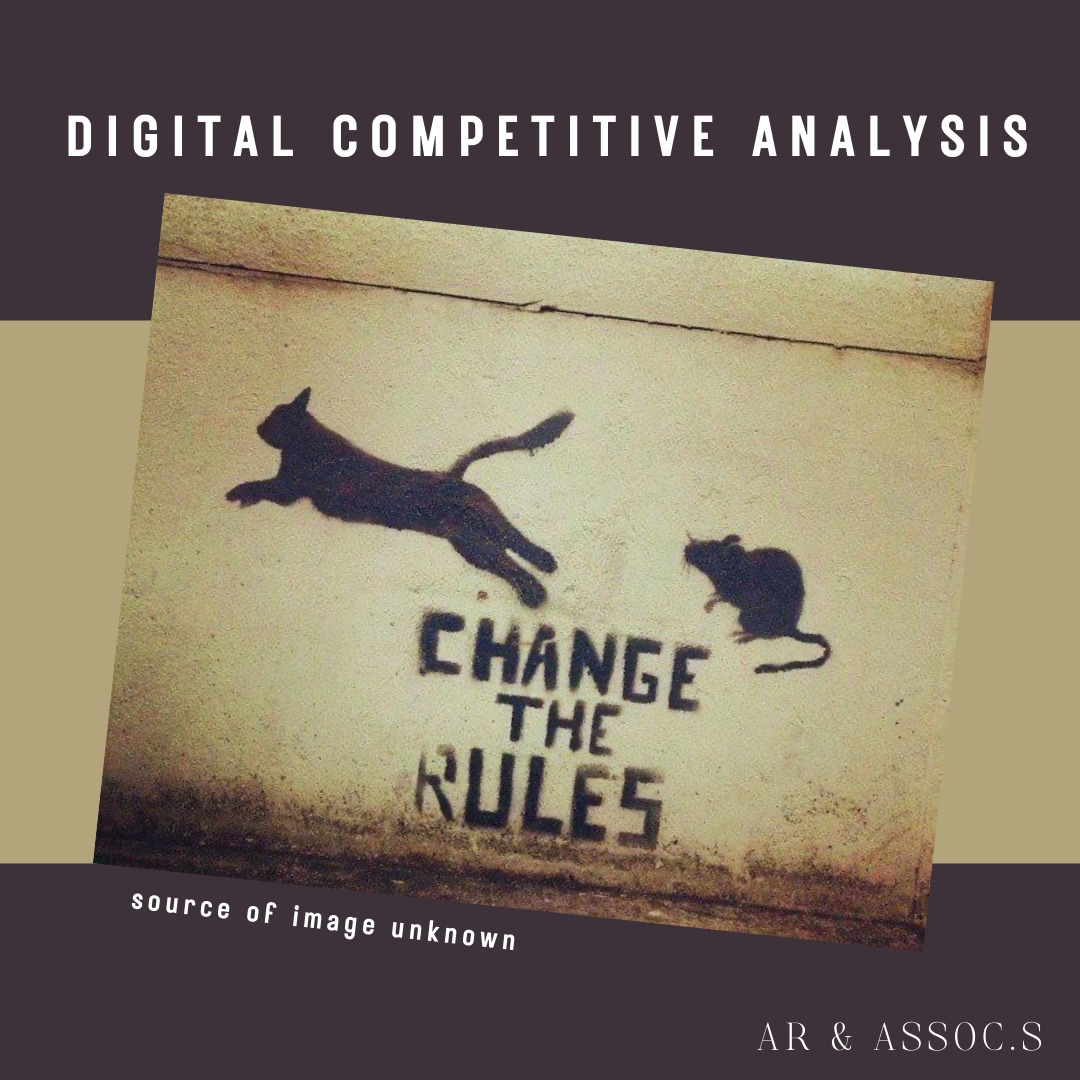
What:
Winning with online marketing requires you to know the landscape, including who are your top competitors are and how you compare across the web. How you market your company compared to your competitors will determine how you perform online in reference to getting leads and potential customers.
It is the process of researching and then, analysing your competitor characterising and their marketing strategies digitally.
Look at your direct and indirect competitions, those with the similar targeted audience(s). Know what you are up against. (Refer to blog, Marketing Analysis)
Review what campaigns that are driving the maximum leads for your competitors, analyse, learn and look at how you can incorporate similar methods. Also, you can identify the industry trends and what your potential customers react positively/ negatively to and plan and act.
The competitor research casts light on what other brands in your niche are doing to acquire and retain customers. The analysis evaluates as many factors as possible to bring insights into what drives traffic to your competitors’ pages and leads to their ads. It highlights the gaps and estimates your potential and opportunities to fill them.
You need to do this ongoingly simply because the market is always changing and adapting. (Refer to the blog on #s what and how to use them.)
Do….
- Your own SWOT (refer to Marketing Analysis blog)
- Look for your competition, even by punching in 10 keywords that have the most relevance to your business into Google will help you see who your top competition (online).
- After listing your competitors, choose the top five and pay special attention to them.
- What social networks are they on?
- How large is their following and how fast is it growing?
- Who are their top followers?
- How often do they post?
- When do they post?
- What is their engagement rate?
- What is their social share of voice?
- What hashtags do they use most often?
- How many hashtags do they use?
- Look at companies in your industry that are paying for Google ads to get their names above the organic search results, as they’re putting their money where their marketing ambitions are. Even if they don’t have great organic search rankings (yet), it’s worth checking out how they’re performing on social media. The brands that rank for your keywords in Google are not necessarily the same ones that rank well with social medias.
- Monitor your stats; know which channels are performing best whilst, keeping an eye on your competitors’ results.
- Stay alert to market trends to better prepare you for the competitive landscape and to stay alert on peaks and declines.
- Learn from your competitors, saves you time and possibly money as you watch what has worked and not worked for them.
- Monitor the industry regularly subject to nature may depend from monthly to quarterly. This will help with Performance benchmarks for your own business, such as average followers, engagement rates, and share of voice, Ideas for the best times to post on social media. Also, it will give an understanding of the potential customer pain points. New (and better) ideas for contentthat may resonate with your audience and thus, how to communicate with your audience on certain platforms and so on.
- Check Social Media Analytics such as: Facebookcan give you some good insights into which other brands your audience follows on these social networks. If these brands are similar to yours, it’s worth considering them as potential competitors.
Suggestive Tools…
Use measuring tools such as Semrush (this is a paid platform) designed to help businesses get an instant overview of their competitive landscape and easily identify upcoming threats to build up a competitive edge.
This is a great tool to help map out the competitive landscape. Also, you can analyse which platforms might bring the most value in your time. This is done by checking where your rivals’ share audience visit most frequently when surfing the web. Also, they have a traffic analysis tool which helps pinpoint your rivals’ most popular campaigns. Other benefits are: you sit in comparison to others in organic searching – there can be many ways but normally can be tracked down why such as: total number keywords which is a whole other level of measuring that can be facilitated with Semrush.
For more on Social Media Competitor Analysis Tools you can look at the Options Hootsuite list.
One which is a paid tool but a favourite of ours is Rival IQ where we can track our clients’ competitors, get analytics with social medias and #s used in specific industries and so on.
To end with Consider this….
Some facts taken form AdWeek, Forrester, Accenture
- 81% of B2C shoppersconduct online research before they make a purchase
- 94% of B2B buyersconduct online research in the buying process
- 60% begin by usinga search engine to find the products they want
- On average, consumers visit at least 3 online stores before making their purchase
- Even if you’re trying to drive in-store purchases, 74% of business buyers conduct more than half of their research online before making an offline purchase.
